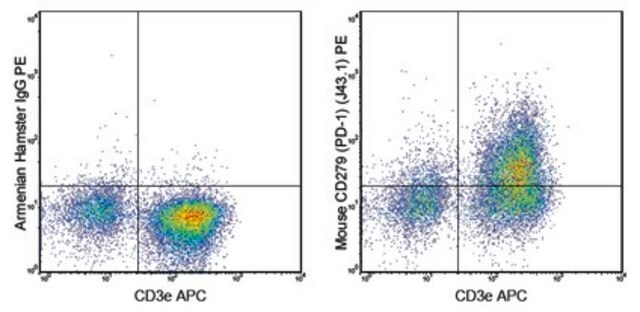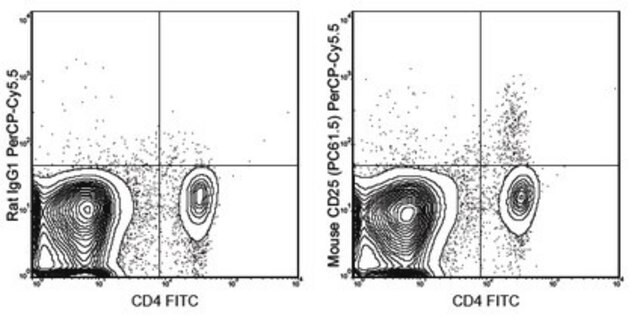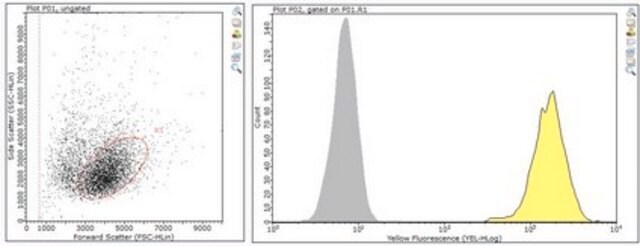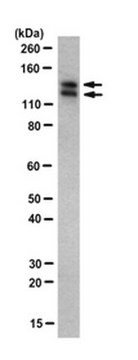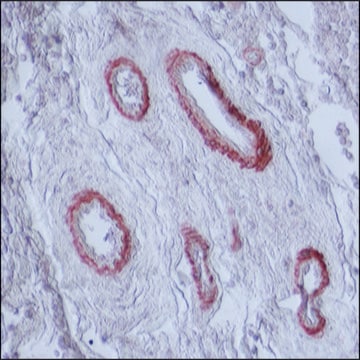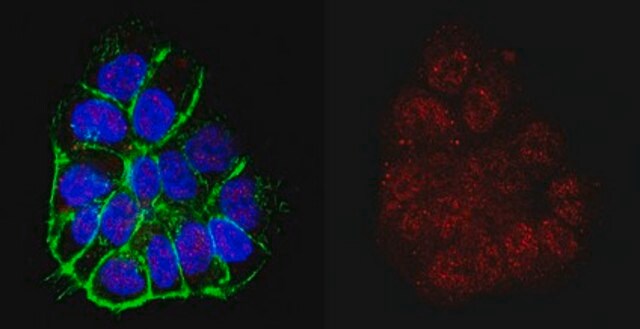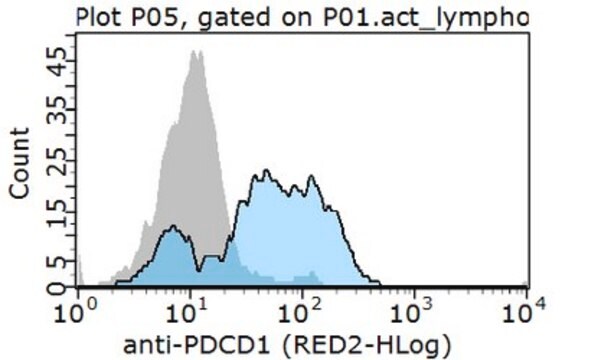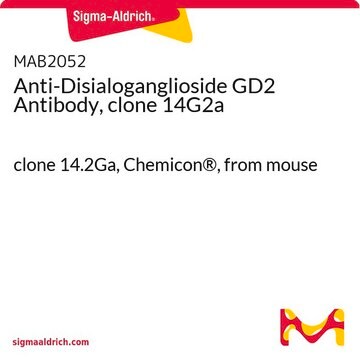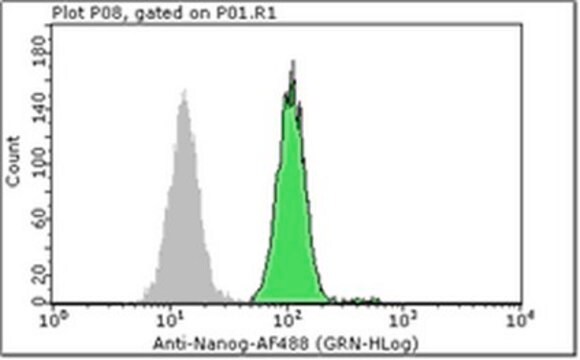MABF406
Anti-CD279 (PD-1) Antibody (mouse), PE, clone J43.1
clone J43.1, 0.2 mg/mL, from hamster(Armenian)
Sinonimo/i:
Programmed cell death protein 1, Protein PD-1, mPD-1, CD279
About This Item
Prodotti consigliati
Origine biologica
hamster (Armenian)
Livello qualitativo
Coniugato
PE
Forma dell’anticorpo
purified antibody
Tipo di anticorpo
primary antibodies
Clone
J43.1, monoclonal
Reattività contro le specie
mouse
Concentrazione
0.2 mg/mL
tecniche
flow cytometry: suitable
immunohistochemistry: suitable
immunoprecipitation (IP): suitable
Isotipo
IgG
N° accesso UniProt
Condizioni di spedizione
wet ice
modifica post-traduzionali bersaglio
unmodified
Informazioni sul gene
mouse ... Pdcd1(18566)
Descrizione generale
Immunogeno
Applicazioni
Inflammation & Immunology
Qualità
Flow Cytometry Analysis: 0.5 µg of this antibody detected CD279 (PD-1) in one million C57Bl/6 splenocytes.
Stato fisico
Stoccaggio e stabilità
Esclusione di responsabilità
Non trovi il prodotto giusto?
Prova il nostro Motore di ricerca dei prodotti.
Codice della classe di stoccaggio
12 - Non Combustible Liquids
Classe di pericolosità dell'acqua (WGK)
nwg
Punto d’infiammabilità (°F)
Not applicable
Punto d’infiammabilità (°C)
Not applicable
Certificati d'analisi (COA)
Cerca il Certificati d'analisi (COA) digitando il numero di lotto/batch corrispondente. I numeri di lotto o di batch sono stampati sull'etichetta dei prodotti dopo la parola ‘Lotto’ o ‘Batch’.
Possiedi già questo prodotto?
I documenti relativi ai prodotti acquistati recentemente sono disponibili nell’Archivio dei documenti.
Il team dei nostri ricercatori vanta grande esperienza in tutte le aree della ricerca quali Life Science, scienza dei materiali, sintesi chimica, cromatografia, discipline analitiche, ecc..
Contatta l'Assistenza Tecnica.